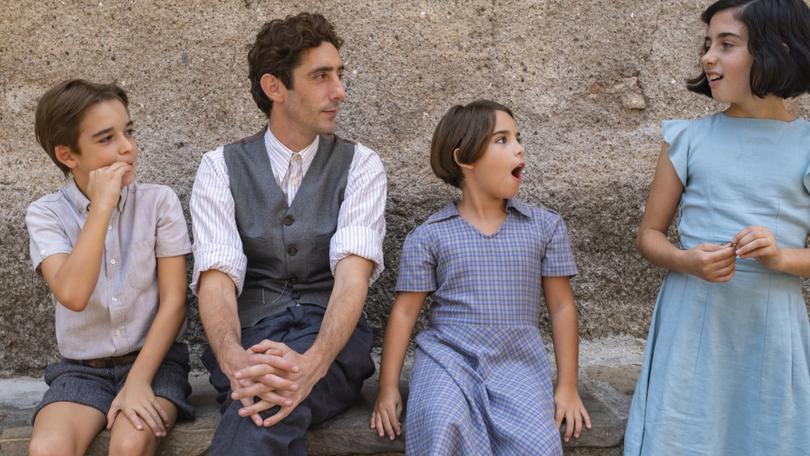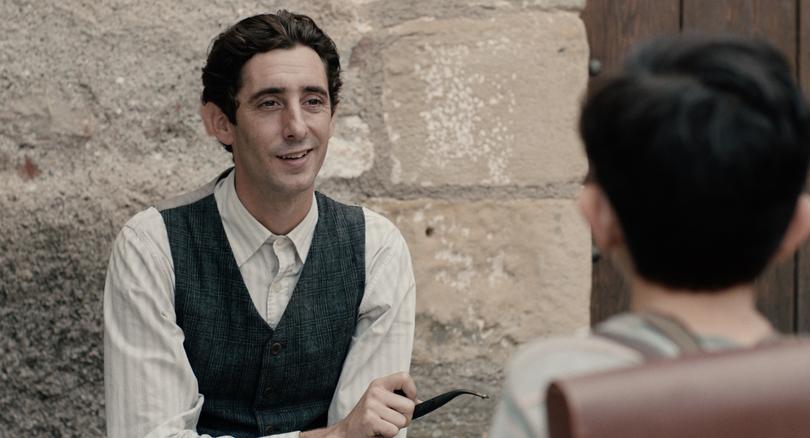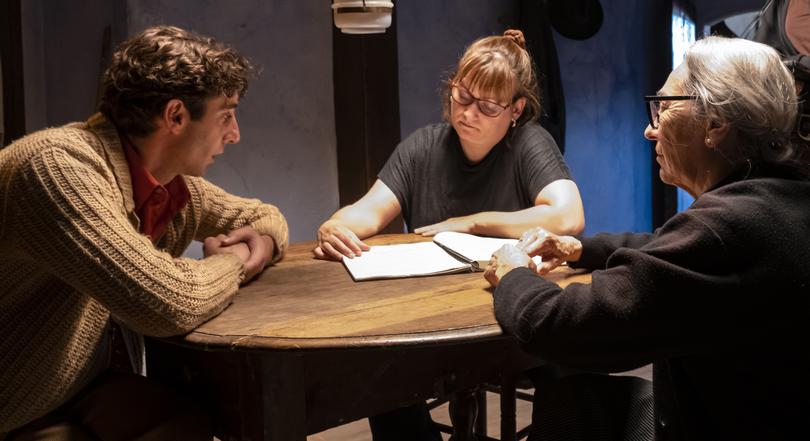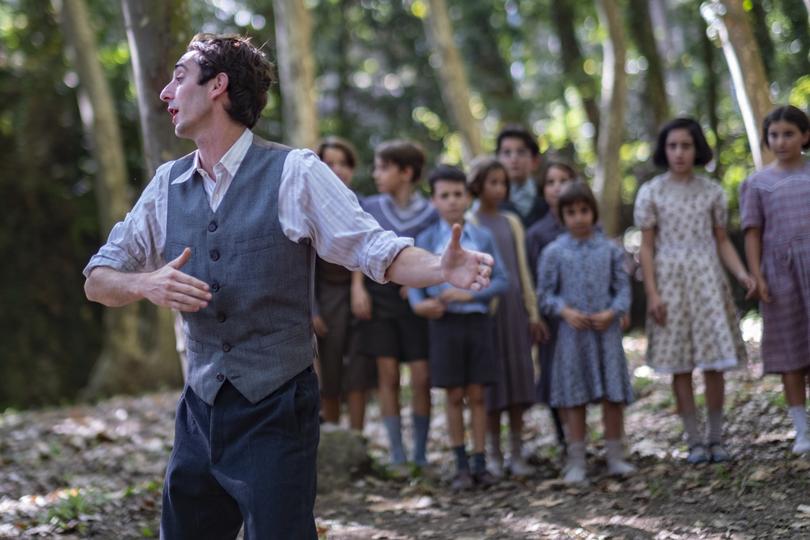The Teacher Who Promised the Sea: Filmmakers keep alive stories of the Spanish Civil War
The Spanish Civil War is all over Spain’s cinema, and for good reason. The fuzzy space of historical memory and reconciliation is catnip for artists and storytellers.

In 1934, a Catalan teacher named Antoni Benaiges arrived in a small town in northern Spain and changed his students’ lives.
Instead of the hard-fisted method of the Catholic Church, he advocated for a humanist approach to education and ignited a love of learning in his primary school-aged charges, helping them write and print booklets about their lives.
But the progressive and outspoken Benaiges ended up on the “wrong” side when the right-wing Nationalists led by General Francisco Franco’s military junta overthrew the Republican government in July 1936.
Sign up to The Nightly's newsletters.
Get the first look at the digital newspaper, curated daily stories and breaking headlines delivered to your inbox.
By continuing you agree to our Terms and Privacy Policy.A week after the Nationalists infiltrated the institutions of power in the province of Burgos, Benaiges was rounded up, tortured and executed.
The Spanish Civil War has been a weighty and frequent subject matter for the country’s artists and filmmakers, from classics such as Luis Bunuel’s Viridiana to contemporary favourites such as Guillermo del Toro’s Pan’s Labyrinth and Pedro Almodóvar’s Parallel Mothers.

The role of storytelling in national and historical memory is particular significant when you’re dealing with something as contested and internally fractious as a civil war. When it’s friends against friends and neighbours against neighbours, that terrible history is even harder to reconcile.
Benaiges’ largely forgotten story is the bedrock of The Teacher Who Promised the Sea, a Spanish film which is released in Australia this week, but it’s more than that. The movie was a commercial hit when it was released in Spain last year, not just because of the stirring story of this remarkable individual but what it evoked in families all over the country.
Patricia Font, who directed The Teacher Who Promised the Sea, was approached after every screening with someone’s personal story about the war.
“Everybody has one,” she told The Nightly. “And everybody was thanking me for doing (the movie) and doing something that was very moving.”
While fewer and fewer survivors of the war remain, stories have been passed down in every family, no matter what side they were on.
“It wasn’t so long ago, and you can still tell, maybe not day-to-day, that those wounds have not healed. Our grandparents, uncles, that generation still has a lot to say about it.
“They tell us their own stories about the Civil War. That’s why our generation feels a link to that story, because it is part of our families still.”

Eighty years on from the conflict, the different sides still don’t agree on how to move forward. Do you purge the past or do you confront it?
There’s a fictionalised framing story in The Teacher Who Promised the Sea which is set in the 21st century. It involves a woman, Ariadna, whose elderly grandfather is searching for what happened to his dad during the war.
A mass grave near his hometown is being exhumed with the bodies of war victims ready to be claimed by their descendants. In helping her grandfather try to answer a crucial question about his past, she stumbles across the story of Antoni in the village of Banuelos de Bureba, which launches into the 1930s flashbacks.
Exhumations of these mass graves, of the unnamed and killed, is a hotly debated space in Spain, Font said. “Half of (Spain) think that all these people who were lost and assassinated should be exhumed because there are still thousands of them.
“And the other half thinks it should be left there, and move on.”
Font said the official position changes depending on which government is in power, “If the left government is ruling, they do work on it, if it’s the right, they stop it. That’s how it goes now.”

When Font went to visit Banuelos de Bureba, to see the actual school Benaiges taught in, she found a small village with only 10 or 15 people still living in it. It was rundown and too shabby for the production to film in without a VFX budget to cheat it. Font’s team found a similar place to stand in for Banuelos de Bureba.
“A lot of small villages in the middle of Spain are like that now,” she said. “Everyone has moved to the cities so it’s an abandoned part of Spain.”
But The Teacher Who Promised the Sea has revitalised the village, which has set up a museum in the old school where among the displays are the booklets printed by Benaiges and his students, who have all since died. The movie has given a second life to the town.
Artists are drawn to the contested space of historical memory because it’s through those stories you can move closer to reconciliation. If you’re not truthful about the ghosts of the past, how can you hope to understand the present and shape the future?
But it will always remain an incomplete project.
“We have a responsibility as the years go by. The newer generations need to know, they need to remember,” Font said. “That’s why we still make these movies. There will always be stories about it that have passed through our families and while there are still bodies to be found, I don’t think this is a theme that will end.
“Cinema has that responsibility to keep the memory of what happened alive, and to tell everyone.”
The Teacher Who Promised the Sea is in cinemas

